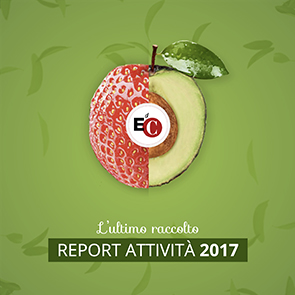Interview with Felix Finkbeiner who started planting trees at the age of nine. His association called "Plant for the Planet" has spread throughout the world thanks to the help of other environmentally conscious young people
by Lorenzo Russo
published in Città Nuova on 20/11/2018
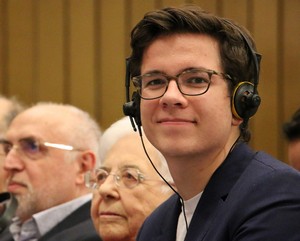 Felix Finkbeiner is a 20-year-old German young man and is considered a Change Maker, or rather someone who does something to change the rules through good practices, aimed at encouraging alternative economic models that are oriented towards integral human development and sustainability. He has already planted over 20 billion trees around the world.
Felix Finkbeiner is a 20-year-old German young man and is considered a Change Maker, or rather someone who does something to change the rules through good practices, aimed at encouraging alternative economic models that are oriented towards integral human development and sustainability. He has already planted over 20 billion trees around the world.
We met him in Castel Gandolfo on the occasion of the Prophetic Economy conference, which brought together over 500 people who share the desire to change the world through an economy aimed at the common good.
Felix, how do you run this initiative and what impact does it have on the climate?
With the support of many governmental companies and organizations around the world that have helped us over the past 10 years, we have managed to plant about 15 billion trees worldwide. Because every tree we plant absorbs CO2 that is extracted from the atmosphere and our goal is to convince the world to plant a trillion trees. So about one hundred and fifty trees for every person in the world. This is the maximum number of trees we could plant. And if we could plant these trillion trees, they would capture about a quarter of man-made carbon emissions.
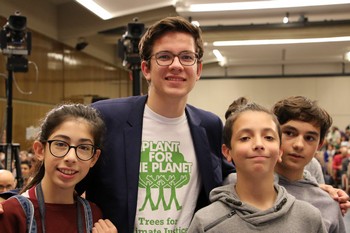 How long have you been planting trees and where did this passion come from?
How long have you been planting trees and where did this passion come from?
I started planting trees about 11 years ago (when I was 9 years old) because I was asked to make a small presentation at school about the climate crisis. While preparing for the presentation I found out about Wangari Maathai, a Kenyan woman who had planted 30 million trees in 30 years together with many other women. So we children, fourth grade students at the time, thought that we could also start planting a million trees in every country in the world. And shortly afterwards we planted our first tree. Some other schools started to join us. And a slightly older student created a very simple website for us, which was essentially just a ranking among the local schools of those who had planted trees. Many schools started a competition on who planted more trees. And that's how Plant for the Planet spread very quickly. Initially in Germany only, and after a year we had planted about 50 thousand trees. And after three years, a million trees. And shortly after Plant for the Planet started spreading to many other countries. And now we have about 70,000 members. That is, young children in about 70 countries who are planting trees in their own countries and convincing others to help them. But of course we can't achieve these goals all by ourselves, as children and young people planting trees. We also need powerful companies and government organizations to help us plant a trillion trees.
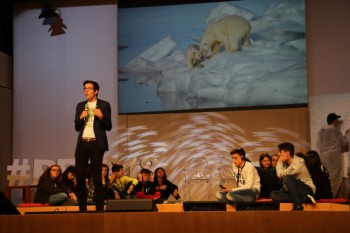 How can the economy be transformed into a prophetic economy through this initiative?
How can the economy be transformed into a prophetic economy through this initiative?
Well, our vision of planting billions of trees could profoundly reshape the entire global civilization. If we increased global forest cover from around 30% to 40%, it would not only help us tackle our biggest challenge of the climate crisis, but it would also have many other benefits. It would help us prevent the growth of deserts. It would mean more water where there is very little. It would mean more productive agriculture. It would mean many benefits and in particular it would mean resources in parts of the world that are now the poorest ones. They would therefore profoundly reform our global economy.
What did you think when the Pope's encyclical Laudato Sì came out?
Laudato sii was absolutely fantastic because it made clear to all of us the major challenges we face and that we can only face these challenges if we work together globally, as a global society, because these are not challenges that can be solved by individual countries, but only through global collaboration. And I think the beauty of this is that if we take these solutions seriously and implement them, we will learn that we can address these global challenges on a global scale, something we have never done before in human history.
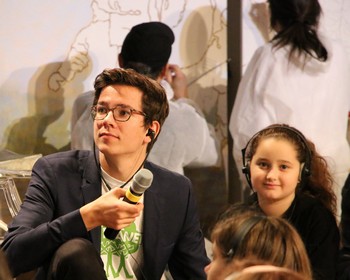 What was your interest when you started planting trees?
What was your interest when you started planting trees?
When we started Plant for the Planet, I wanted to save the polar bear which was my favourite animal and I wanted to do something to save it. That's why we started planting trees. But then we realized that the climate crisis and these global challenges are not about saving the polar bear, it's about saving our future, saving ourselves. We will experience the consequences of the climate crisis in the course of our lives. That is why we are active, for ourselves. It is in our interest because it concerns our future.
How can we make young people aware of your initiative?
One of the main things we do with Plant for the planet is to try to convince others to teach others about these issues and convince them to join us in addressing them. And that is why we are building a global network of young people and children. Now we are at seventy thousand members who not only plant trees on their own, but make presentations in their schools and groups of interest, often in their church communities, to convince them, to tell them about these global challenges and convince them that we have to do something - because young people are wonderful messengers for a global challenge that is about to have an impact precisely on us, young people”.
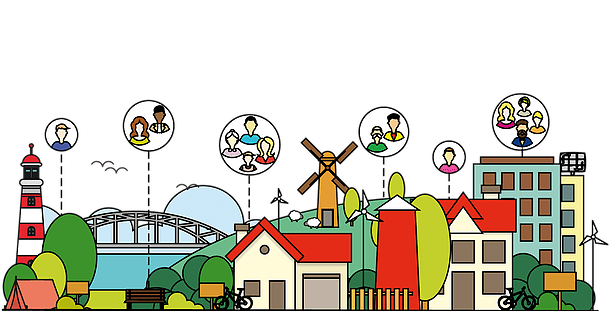

 Felix Finkbeiner is a 20-year-old German young man and is considered a Change Maker, or rather someone who does something to change the rules through good practices, aimed at encouraging alternative economic models that are oriented towards integral human development and sustainability. He has already planted over 20 billion trees around the world.
Felix Finkbeiner is a 20-year-old German young man and is considered a Change Maker, or rather someone who does something to change the rules through good practices, aimed at encouraging alternative economic models that are oriented towards integral human development and sustainability. He has already planted over 20 billion trees around the world. How long have you been planting trees and where did this passion come from?
How long have you been planting trees and where did this passion come from? How can the economy be transformed into a prophetic economy through this initiative?
How can the economy be transformed into a prophetic economy through this initiative? What was your interest when you started planting trees?
What was your interest when you started planting trees?






